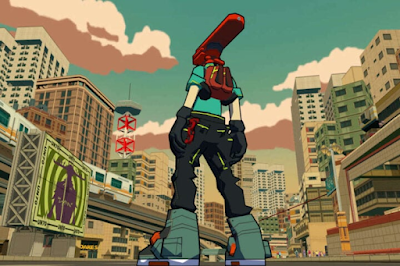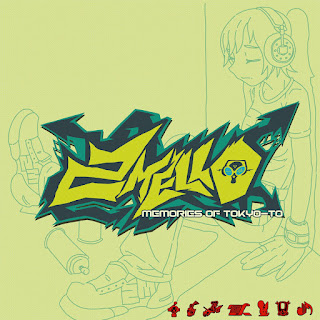Back in June, while scrolling the paragraphs of conversation that populate the Dreamcast-Talk Segagaga forum thread, I came upon a post from a developer known as Rengundo, who mentioned that he was working on recreating the first chapter of Segagaga in Unreal Engine 5. Sharing a short 27-second clip of some gameplay, it looked surprisingly faithful to the original. It was on PC, as opposed to the Sega Dreamcast, but —perhaps most importantly— it was in English!
After getting the chance to recently talk with Tez Okano about Segagaga, my appreciation for his game was at an all-time high. But I was soon hit with the sobering reminder that an English fan translation patch for the game continues to remain a non-starter, despite the community's best efforts. As detailed in the introduction to that interview with Okano-san, technical issues with in-game text hacking has been the main hurdle that has prevented any fan translation patch project of the game from reaching completion.
That was when I found myself wondering about Rengundo's project once again. Replying to a comment on his original video, it turned out he was still working on it. He had encountered some issues with Unreal Engine 5, but had since switched the project over to Godot, and confirmed that an update was due imminently.
 |
| A cutscene from Segagaga Encore, which uses Ross O'Reilly's open source translation of Segagaga. |
On January 5th, alpha footage of what Rengundo was now calling "Segagaga Encore" appeared on YouTube, and well, it's looking really impressive! In the new engine, Rengundo had not only managed to effectively recreate the game's distinct graphical look and "Development Studio A" area, but also its opening cutscenes (complete with English dubbing), and its RPG battle system — all in widescreen. This remake will also feature modern quality-of-life improvements like free movement and cinematic camera angles. If you want to see it for yourself, I have embedded the video below.
While we all obviously want a fan translation patch of Segagaga to be released someday for the Dreamcast, this outside-the-box approach of delivering at least something playable in English —in this case the first chapter— is certainly not something to be sniffed at, especially when it looks this good. Intrigued to learn more, I got in touch with Rengundo to ask him all about the Segagaga Encore project.
DCJY: Hi Rengundo, thanks for agreeing to answer our pressing questions about your Segagaga Encore project. We're really loving what we've seen so far, and are excited to get into the ins and outs of the project with you. First though, we must ask: when was the first time you encountered Segagaga? What was it that drew you to the game?
Rengundo: Thanks for inviting me to answer these questions! I first heard about Segagaga in early 2023 while looking around forums for interesting games to potentially translate. The strange name immediately caught my attention, and the more I learned about it, the more intrigued I became. I’m not sure there’s anything quite like it. It’s this wonderfully self-deprecating, meta take on Sega’s own struggles at the time, where two high schoolers are tasked with saving the company from bankruptcy.
What truly fascinates me is the way Segagaga blends humor and commentary on the gaming industry. For instance, its “battle system” revolves around arguing with Sega employees. After each battle, there’s a chance to negotiate salaries with the employees, trying to bring them onto your team at the lowest possible rate to maximize your budget. A lot of its jabs at industry practices, like rushing out unfinished titles to boost sales during high demand, still feel very relevant today. It’s such an interesting little game that it’s impossible for me to ignore.
Various technical hurdles with hacking Segagaga have been blamed for why we don't have an English fan translation patch for it already. Was your recreation of Segagaga on PC an attempt to take matters into your own hands and bypass the roadblocks that face the Dreamcast version?
Absolutely. By the time I learned about Segagaga, there was some decent progress on many of the hurdles, though there were notable issues that still remained. As someone new to the Dreamcast modding scene, and seeing the nearly two decades of failed attempts to make an English version, I didn’t feel confident in my ability to create a translation patch. I had the idea of making the game in Unreal Engine, as it didn’t seem too logically complicated if I only focused on the RPG parts. I decided to recreate the first chapter of the game, hoping that part of the game being playable in English could build interest and support for patch efforts.
For the earliest version, I ripped the player’s sprites from VRAM to make a sprite sheet for him and put some basic movement code together. I shelved the project when new people announced they were working on a translation patch. But after more than a year with no updates from them, I decided to pick it back up and have been making progress since.





















.png)

















